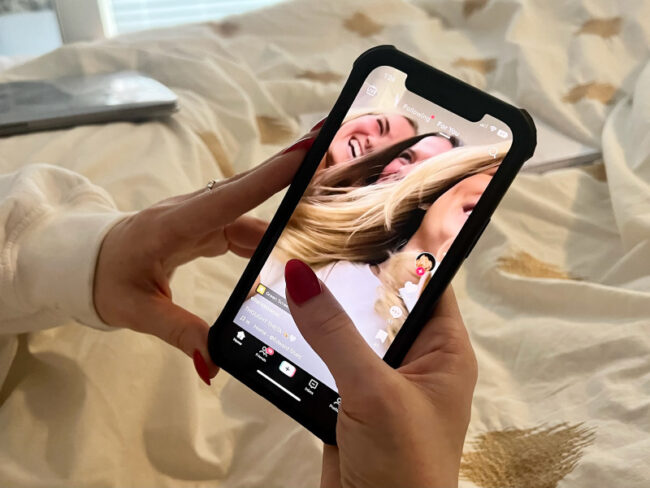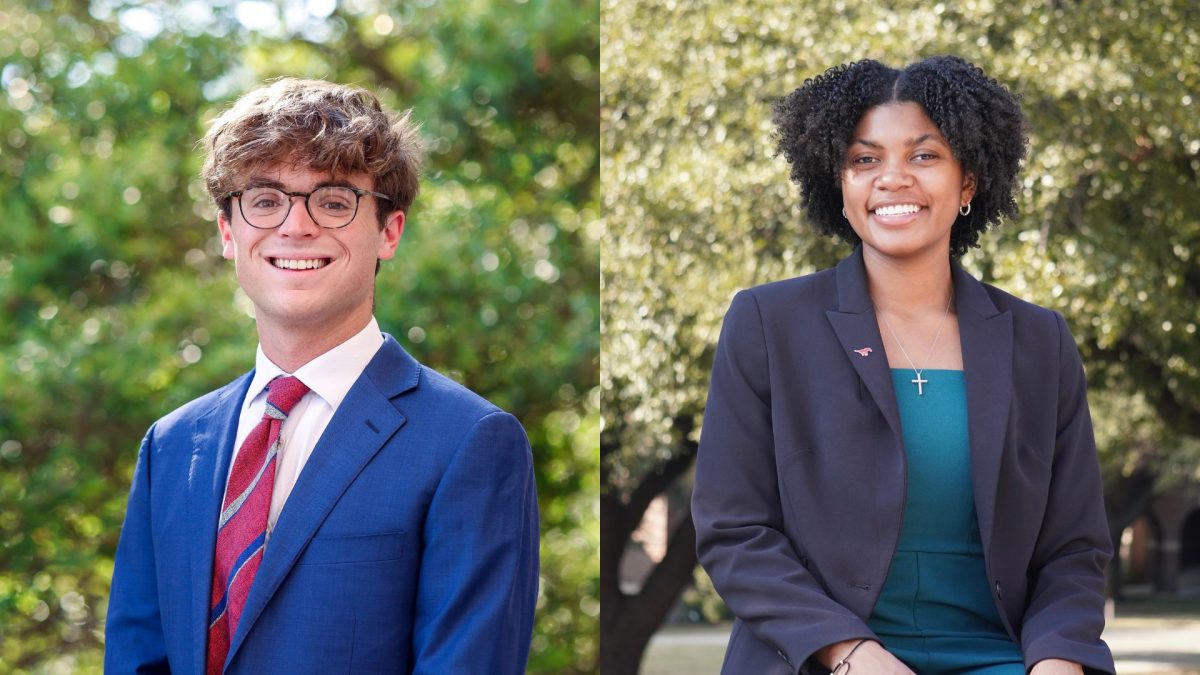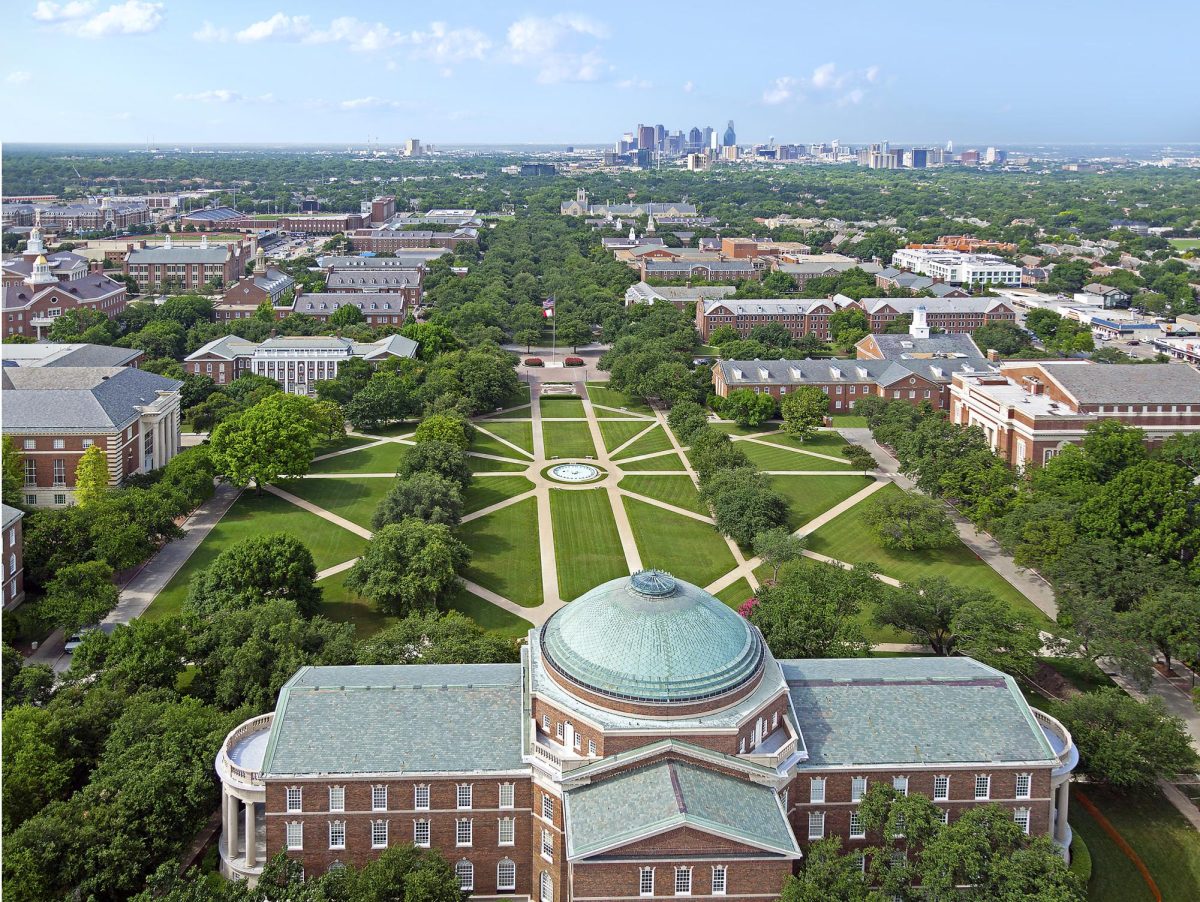By Brey Sands & Emma McRae
As more Texas universities follow the state government’s lead in banning TikTok on campus networks, SMU administration assures students they have no reason to worry.
“There has not been any discussion about a TikTok ban at SMU at this point,” Chief Security Officer George Finney said. “The President’s Executive Council would review and make recommendations to President Turner who would make the decision.”
On Monday afternoon Texas governor Greg Abbott furthered efforts in banning the app, announcing his plans to ban TikTok on all state-issued devices and networks.
This announcement follows the recent trend of many Texas public universities, such as University of Texas at Austin, Texas A&M and the University of North Texas, banning the app on campus WiFi. Nearly half of the states—and their public institutions of higher education—including Texas have banned TikTok on state-issued devices and networks.
Abbott took to Twitter to announce the reasoning behind his future plans to ban the app.
“The Chinese Communist Party is using TikTok to collect Americans’ sensitive information,” Abbott tweeted. “It’s putting Texans at risk.”
The statewide model security plan Abbott unveiled provides objectives for state agencies that intend “to protect Texas’ sensitive information and critical infrastructure from potential threats.”
Under these objectives, the use and download of TikTok is prohibited on state-devices. Further measures also prohibit employees from conducting state business on devices enabled with TikTok and implement network-based restrictions to prevent the use of TikTok and other “prohibited technology” on agency networks by any device.
The plan is an expansion of an earlier directive Abbott issued in December instructing state agencies to remove the app from all government-issued devices.
In a letter to Lt. Gov. Dan Patrick and House Speaker Dade Phelan, Abbott cited national security concerns for banning TikTok which is owned by the Chinese company ByteDance Ltd.
“TikTok harvests vast amounts of data from its users’ devices—including when, where and how they conduct internet activity—and offers this trove of potentially sensitive information to the Chinese government,” Abbott said in another letter to the leaders of state agencies. “Together we will defend the State of Texas against a Chinese government that wields TikTok to attack our way of life.”
Some of the state’s largest universities, including Texas A&M and University of Texas at Austin, have followed the governor’s lead in banning the app. The bans are sure to greatly impact college students with 48% of people ages 18-29 reportedly using the app, according to the Pew Research Center.
Texas students affected by the ban can still access TikTok while on campus through their own personal data plans. Despite this loophole, many SMU students, like sophomore Aliveia Waters, worry about their own agency should the school impose a similar ban.
“I feel like it would be infringing on our freedom,” Waters said. “I think to legally ban it, feels a little bit extreme.”
SMU journalism professor and expert on First Amendment freedoms Jared Schroeder, Ph.D., echoed students’ concerns about the implications the bans pose on free speech. He also said Abbott’s potential concern about data collected by the app is similar to that of other platforms.
“All these social media tools take personal, private information. The only difference here is whether or not we believe that TikTok, because of its Chinese ownership, is a problem,” he said. “If some leaders think it’s a problem, maybe it is. But we shouldn’t immediately give up our rights because there’s a potential concern.”
Instead of banning TikTok on university networks, Schroeder said a better approach would be a more narrow and targeted solution that affects the people whose private data could actually create a national security problem.
“If we’re concerned about national security, there are people on a public university’s campus that are doing research for the Defense Department or critical infrastructure research. We should look more to secure their use of TikTok or the access to their private data,” Schroeder said.
Although SMU has not announced any plans to ban TikTok, students are still concerned about the possibility of SMU banning the app on campus WiFi.
Political science major at SMU, Liliane Houston, said she would be annoyed if SMU banned the app.
“I would think it’s ridiculous because it’s a private university and I don’t think that a private university has the right to decide what’s a privacy concern and what’s on my phone,” Houston said.
In the wake of students feeling uneasy, Finney told The Daily Campus SMU will not take into account the choices of other universities to decide what is best for SMU.
“While SMU pays attention to trends and best practices at other universities and in higher education in general, decisions are made based on our own specific circumstances,” Finney said.
So for now, SMU remains Switzerland in the war on TikTok that hangs over Texas and the rest of the country.
Want to know more about the Texas TikTok bans? Check out Elizabeth Guevara’s column about whether or not the app is really a threat.
Elizabeth Guevara, Katie Bergelin and Caroline Downing contributed to this reporting.





















